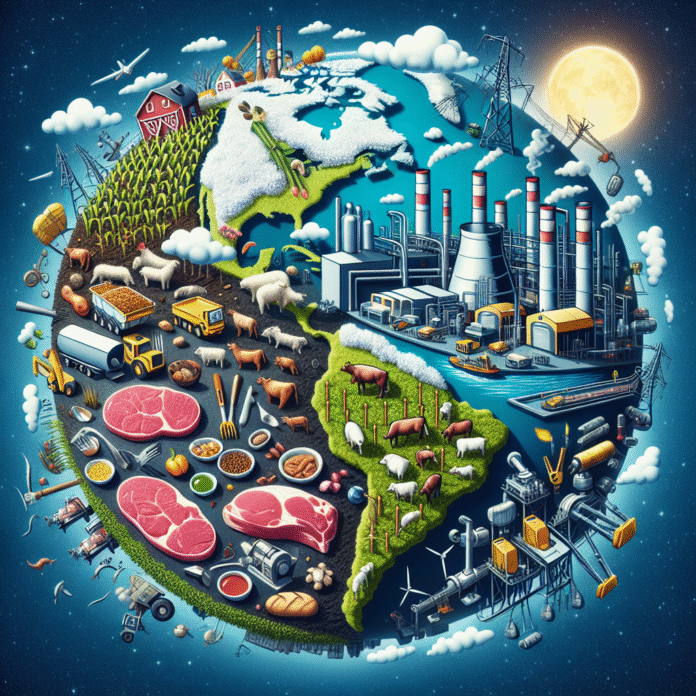No Agriculture and Meat Are Not Major Contributors to Climate Change Compared to Fossil Fuels
No, Agriculture and Meat Are Not a Bigger Driver of Climate Change Than Fossil Fuels
There has been an ongoing debate about the relative contributions of agriculture, particularly livestock production, compared to fossil fuels in driving climate change. While agriculture, and specifically meat production, does have a significant environmental impact, it is essential to understand the broader context of greenhouse gas emissions.
Fossil fuels, including coal, oil, and natural gas, are the primary sources of carbon dioxide (CO2) emissions, contributing approximately 75% of global greenhouse gas emissions. These emissions primarily result from energy production, transportation, and industrial processes. The combustion of fossil fuels releases large amounts of CO2, a greenhouse gas that is a major driver of climate change due to its long atmospheric lifetime and heat-trapping capabilities.
Agricultural Emissions: A Different Perspective
On the other hand, agriculture accounts for around 10-12% of global greenhouse gas emissions. Within this sector, livestock farming is a significant contributor, mainly through methane (CH4) emissions from enteric fermentation, manure management, and nitrous oxide (N2O) emissions from fertilizer application. Methane is a potent greenhouse gas, with a global warming potential many times greater than that of CO2 in the short term.
However, it’s crucial to recognize that the emissions from agriculture are distinct in nature and impact compared to those from fossil fuels. While both sectors contribute to climate change, their roles are not directly comparable. The urgency and scale of reducing fossil fuel consumption are paramount, given their overwhelming contribution to global warming.
The Need for Comprehensive Solutions
Addressing climate change requires a multi-faceted approach that includes mitigating emissions from both fossil fuels and agriculture. Transitioning to renewable energy sources, improving energy efficiency, and adopting sustainable agricultural practices are essential steps. For instance, enhancing livestock management and promoting plant-based diets can help reduce the agricultural footprint. Additionally, investing in carbon capture technologies and supporting reforestation can contribute to overall emission reductions.
In summary, while agriculture and meat production do play a role in climate change, they are not the primary drivers when compared to fossil fuels. A comprehensive strategy that targets both sectors is necessary to effectively combat climate change and ensure a sustainable future.


